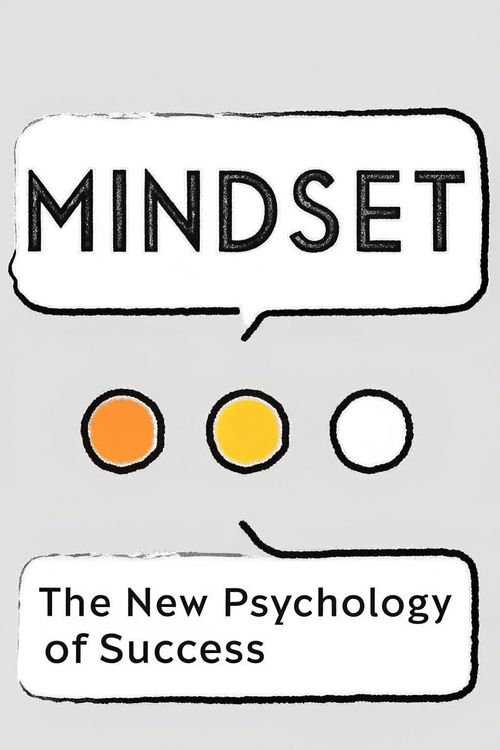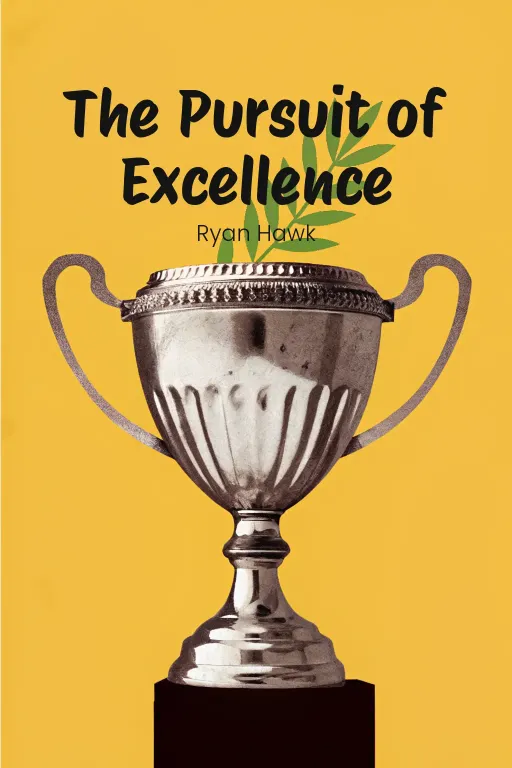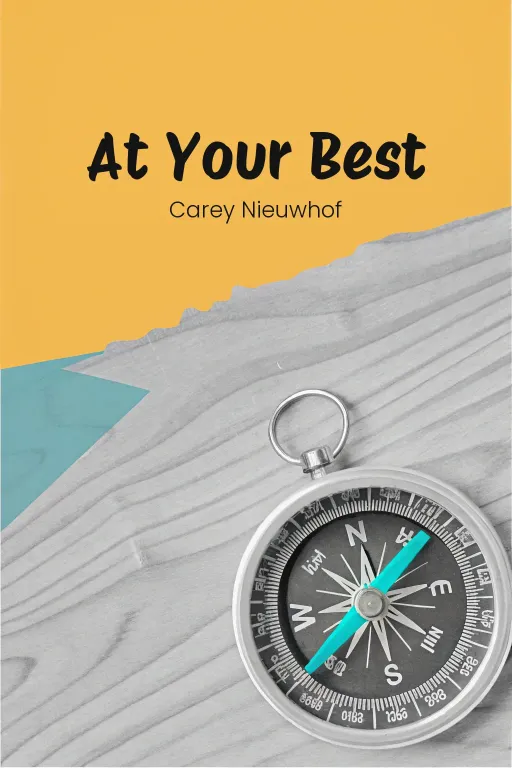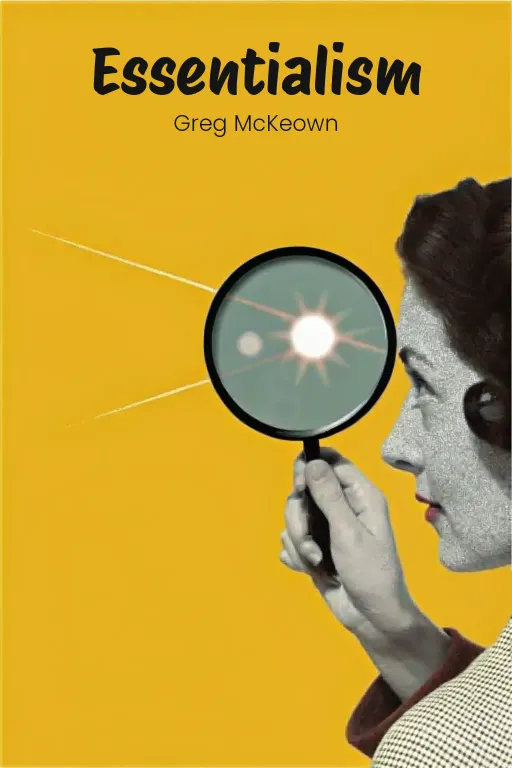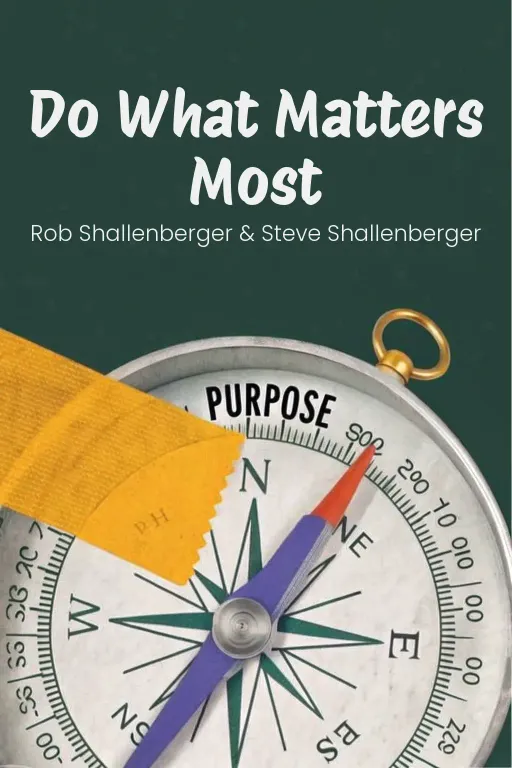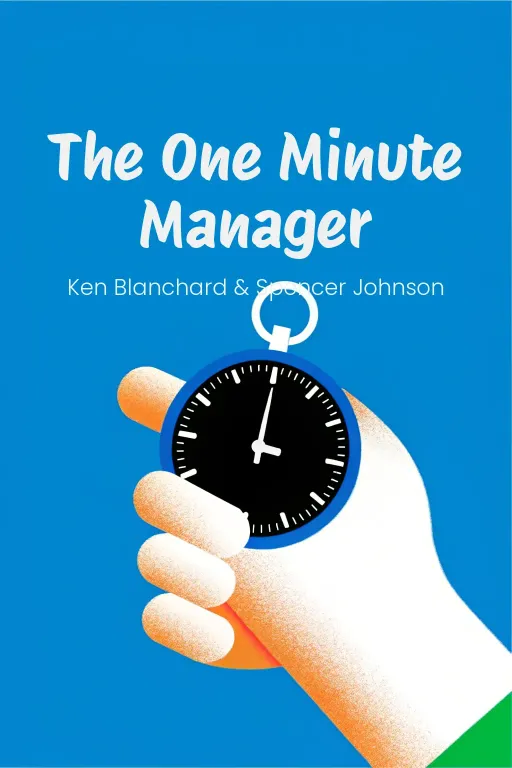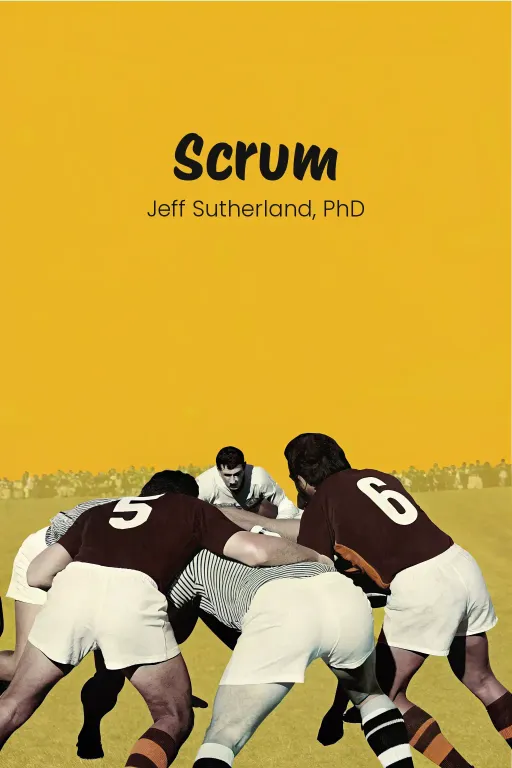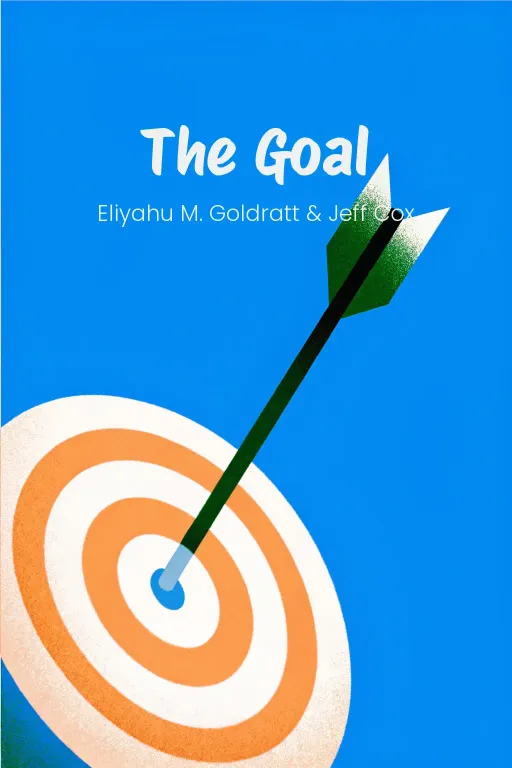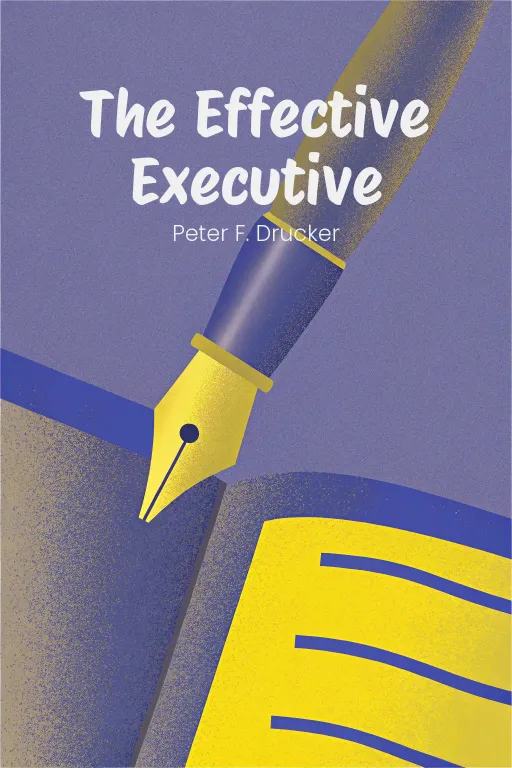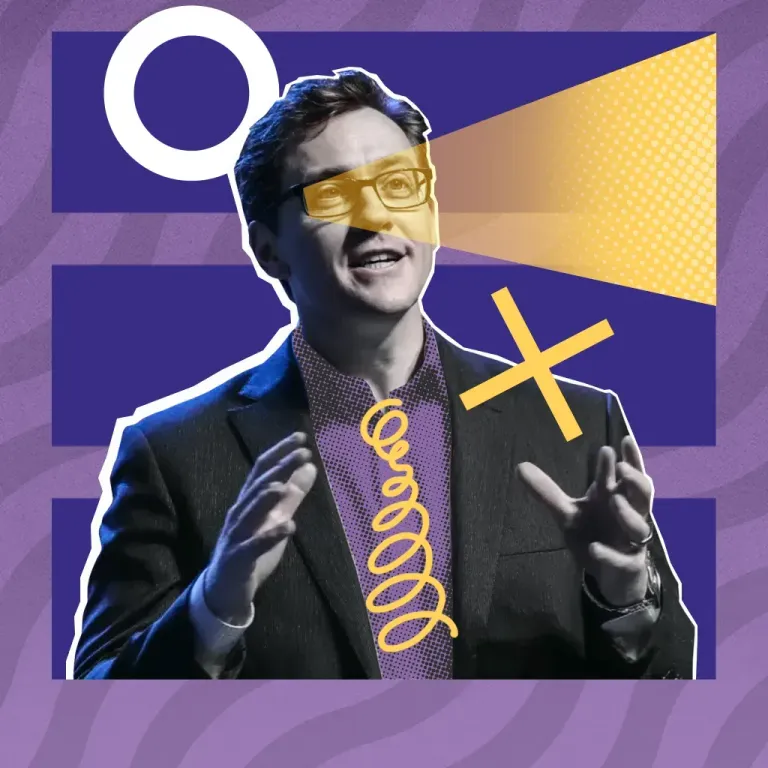
Less Doing, More Living
Podcast by Beta You with Alex and Michelle
Improve your life by only focusing on the essentials
Introduction
Part 1
Alex: Hey everyone, welcome back! Let me kick things off with a question: how often do you feel like you're just swamped, pulled in every direction, but somehow not actually making progress? Michelle: <Laughs> You mean, like, every Monday morning? And sometimes even Tuesdays by mid-morning? So, are we finally admitting that color-coded to-do lists aren't the miracle cure we hoped for? Alex: Precisely, Michelle! Today, we're diving into Greg McKeown's “Essentialism: The Disciplined Pursuit of Less”. This book is all about cutting through the noise and focusing on what “really” matters. It’s not about cramming more in; it's about actually doing “less”, y'know, but doing it “better”. Michelle: Less chaos, more…sanity? Sounds appealing, Alex. But practically speaking, where do we even begin? Alex: That's what we're tackling today. We’re breaking it down into three key steps. First, we’ll explore the power of choice – why actively taking control of your decisions is the key to, like, escaping that feeling of endless busyness. Then, we’ll tackle trade-offs – how learning to strategically say "no" frees you up to focus on what's truly extraordinary. Finally, we'll dive into clarity – finding and using your own personal compass to cut through distractions and stay on course. Michelle: Choice, trade-offs, clarity – Sounds like building a life GPS. And I promise I'll bring the tough questions, Alex. Like, what does saying “no” even “look” like without, y’know, sounding like a complete jerk? Alex: Exactly the right question. Alright, let’s jump in, Michelle, and help everyone listening unlock that amazing feeling of freedom that an essentialist life can bring.
The Power of Choice
Part 2
Alex: Okay, Michelle, let's jump right back in. At the very core of essentialism, there's this undeniable power: choice. And I'm not talking about just any choice, but really deliberate, intentional decision-making. McKeown is super clear about this: our lives are shaped by our ability, or our failure, to actively choose what we commit to. Michelle: Hmm, that sounds both empowering and, frankly, exhausting. Isn't there something actually comforting about just, you know, following a schedule someone else set, or just saying yes to avoid any conflict? Alex: I totally see where you're coming from. And that's actually a big part of the problem, right? It feels easier in the short term to cave into external demands, or just let others decide things for us. But that's exactly how we surrender our own agency. McKeown pretty much argues that every time you say "yes" to something nonessential, you're inadvertently saying "no" to something that actually matters way more. It's a zero-sum game when it comes to your energy, your time, everything. Michelle: Okay, but let's get practical here. What does this “agency” look like in someone's actual day-to-day life? Alex: Well, take the idea of intentionality in decision-making, for example. It's about pausing, just for a moment, to really weigh every decision against your own values and priorities. So, instead of just impulsively reacting to every single request, you ask yourself, "Why am I doing this, really? Is this aligned with what's truly important to me?" Michelle: Sounds great in theory, Alex, but, uh, not everyone teaches you how to "pause." Some of us are on autopilot, juggling like ten things before breakfast. Are people just supposed to, like, snap out of that? Alex: No, not at all. That's where we need to address the concept of learned helplessness. It's a big part of that. Michelle: Learned helplessness? Is that the thing where people kind of give up because they think nothing they do makes a difference? Alex: Exactly. The term actually comes from an old psychological experiment. Researchers found that dogs subjected to random shocks, without any way out, eventually just stopped trying to avoid them. Even when they did introduce an escape, they stayed put, because they'd been conditioned to feel powerless. Michelle: That's, uh, awful. But you're saying people do this to themselves? Alex: They do, and often without even realizing it. Think about how many of us accept being perpetually overwhelmed or overcommitted, just because "that's just the way it is," you know? We become totally passive participants in our own lives, basically telling ourselves we don't even have a choice. But here's the twist: McKeown says we absolutely do. Michelle: Hold on – let’s unpack that a little bit. If someone wakes up already buried under deadlines, family obligations, a mountain of emails… where's the choice in that scenario? Alex: It starts with redefining how you even see choice. Reflective practices can be transformative here, really. Instead of just blindly reacting to everything, you cultivate this habit of asking critical questions. Questions like, "What's truly important to me? Does saying yes to this really align with my core values?" Michelle: So, basically, filters for your decisions. Kind of like a spam filter for life. Alex: That's a perfect metaphor, Michelle! And the key is consistency. By asking those reflective questions regularly, you're retraining your mind, you know, to recognize priorities versus distractions. Over time, you actually regain the sense of control you might've lost along the way. Michelle: Okay, but let's bring this to life with a real example. Do we have a story where someone applied this kind of mindset and actually turned things around? Alex: Absolutely! The story of Sam Elliot, a Silicon Valley executive, is a classic example. Sam was totally in over his head after his company was acquired. He said yes to everything—every meeting, every request—thinking compliance was the secret to success. Michelle: I think I've worked with a "Sam." Did he survive on caffeine and, uh, existential dread? Alex: More or less! But eventually, he hit his breaking point. A mentor challenged him to reclaim his agency, basically by choosing selectively. Instead of just reacting to expectations, Sam started evaluating requests against his goals and values. He'd ask himself questions like, "Does this even create meaningful impact? What am I sacrificing by saying yes to this?" Michelle: Alex, I applaud his shift, but realistically, doesn't saying no invite some backlash? People expect a certain level of availability, especially at work. You pushed back against a manager or coworker; they're not going to be happy about it. Alex: You're absolutely right, Michelle. Saying no can feel uncomfortable, almost unnatural sometimes. And it does take practice. But Sam didn't just flat-out reject everything. He prioritized what was essential and communicated his limits clearly. And here's the thing—once his colleagues saw the improvement in his focus and his results, they started to respect those boundaries. They were like, what's he doing? Michelle: Let me guess—suddenly, the world didn't end because Sam missed a meeting or two? Alex: Exactly. In fact, once he started making these deliberate choices, Sam's performance skyrocketed. He found satisfaction in his work again. Plus, he was able to reconnect with his family and his passions outside of work. He learned that reclaiming his choice didn't just make him more effective professionally—it restored his balance personally, too. Michelle: You know, Alex, I get it. But even as I imagine saying no more often, I can already feel my brain freezing up at all the options I'll need to navigate, you know? Isn't there a risk of having too much choice? Alex: Ah, you're touching on choice overload, a very real psychological phenomenon. When people face way too many options, they often become paralyzed by indecision, or end up dissatisfied with the choices they actually do make. That's why McKeown emphasizes the importance of clear prioritization – you narrow down to just the "vital few" that truly matter. Michelle: So instead of 50 shades of gray, cut it down to, like, two core priorities? Alex: Precisely. For example, say you're a professional drowning in tasks. You might start by identifying one or two key goals for the day—tasks that create the most impact—and just let go of those less urgent commitments. By simplifying, you avoid overwhelm, and you gain momentum. Michelle: It's almost ironic, isn't it? Freedom comes, not from chasing every option, but from curating fewer, better ones. Who would have guessed? Alex: That irony is what makes Essentialism so powerful, really. When you reclaim your power of choice and focus only on what truly matters, you don't just declutter your schedule—you actually transform your life.
The Reality of Trade-Offs
Part 3
Alex: Okay, so once we accept that choice is power, we have to face the music: prioritization means trade-offs. McKeown's core point, Michelle, is that a “yes” to anything is automatically a “no” to something else. People mess this up by pretending it isn't true. Michelle: Ah, so every “yes” is like signing a contract with ridiculously small print. And we're mostly ignoring the terms and conditions, huh? Alex: Precisely! We act like our time and energy are endless, but come on. McKeown says understanding trade-offs starts with admitting we can't have it all. It's about choosing the “vital few” over the “trivial many.” Michelle: Alright, let’s play devil's advocate for a moment. What if I start turning things down? Won’t I look undependable, or worse, like a bad team player? How do we deal with that fallout? Alex: Right, that's a key concern. Making trade-offs feels uncomfortable, especially since we live in a world that celebrates being busy. The temptation is to say “yes” out of obligation, fearing you’ll disappoint someone or miss out. But McKeown flips that. Saying “no” isn't about shutting people down; it's about being intentional, so you can fully commit to what’s truly important. Michelle: So, trade-offs are really about being strategic, not selfish. But give me a practical way to make these tough calls without the guilt. Alex: McKeown has some useful tools. Start by asking yourself, “Does this opportunity genuinely align with my values? Will it move me toward my long-term goals, or is it just noise?” And here’s a crucial one: “What am I giving up if I say yes to this?” Michelle: I like that last question — it forces you to face the consequences, right? If I agree to another project at work, am I “really” saying no to, say, my weekend or my own sanity? Alex: Exactly. That's where the Pareto Principle, the 80/20 Rule, comes in. It says that 20% of your efforts typically drive 80% of your results. McKeown says to find those high-impact activities and then cut, delegate, or minimize everything else. Michelle: Hold on—so, 80% of what I’m doing is basically fluff? Wow, that's both humbling and terrifying. Alex: It's eye-opening, isn't it? But liberating, as well. Instead of half-assing a million things, wouldn't you rather double down on the few things that get you the best results? Michelle: Sure, but let's be real, this isn’t always that simple. People need to see proof that this actually works — or that it won’t backfire spectacularly. Does McKeown have some real-world examples to back this up? Alex: Absolutely. One of the best examples is Sam Elliot, a Silicon Valley exec. After his company got acquired, he was swamped, with every request feeling “urgent.” His first instinct was to say yes to everything, thinking he'd prove how valuable he was. Michelle: Let me guess—he burnt himself out instead? Sounds like a classic overachiever move. Alex: Spot on. He was so overcommitted that his work quality tanked, along with his well-being. Luckily, a mentor stepped in and gave him some life-changing advice: focus only on what truly matters. Sam started systematically reviewing every task, asking himself if it aligned with his core responsibilities and his long-term goals. If it didn’t, he'd say no. Michelle: I bet people didn’t just thank him for declining their requests, right? There had to be some pushback. Alex: Definitely. Saying no isn't always easy or comfortable. But here's the surprising thing – when people saw his focused efforts deliver measurable results, they started respecting his boundaries. His performance improved, and he actually got his evenings back to spend time with family, which he’d lost in the process. Michelle: So, Sam’s trade-offs gave him more balance and better outcomes in the end. But it’s crazy how counterintuitive this feels. We often think saying no closes doors, but it’s really about opening the right ones. Alex: Exactly, Michelle! McKeown stresses that every trade-off helps clarify what really matters. He uses a great metaphor: a sculptor chiseling away marble--not to destroy it, but to reveal the masterpiece within. Michelle: I love that. But isn't making trade-offs emotionally draining, even with all this theory? The guilt of turning things down, the fear of burning bridges…it's a lot to handle. Alex: No doubt. Trade-offs are tough, and the discomfort is real. But McKeown argues that reframing the act of saying no can make all the difference. Instead of seeing it as rejection or failure, see it as affirmation. You're affirming your time, your priorities, and the value of your contributions. Michelle: So, it’s not about being difficult, it’s about advocating for yourself, right? I get that, but I can just picture people rolling their eyes the second you start setting boundaries. Alex: That resistance is normal, but it fades over time, especially if you’re consistent. Plus, think about the alternative. Trying to do everything for everyone leads to burnout and mediocre results at best. Trade-offs might be uncomfortable at first, but they’re essential for long-term success and fulfillment. Michelle: It’s like ripping off a Band-Aid--you know it’s going to sting, but it’s a necessary step to heal and move on. Alex: Exactly, Michelle. By embracing trade-offs, you're not just reclaiming your time; you're creating space for excellence, for what truly matters. And that's the liberating truth of Essentialism.
The Significance of Clarity
Part 4
Alex: So, Michelle, with those trade-offs now crystal clear, let's switch gears a bit. What if you've made your choices, said no to the distractions, yes to what truly matters, and yet you still feel a bit lost? Like something's missing? Michelle: Yeah, exactly! It's like, I've decluttered my life, but I'm still not sure where I'm going. Alex: Ah, you've hit on the core of the challenge—clarity. This is where Essentialism transcends mere time management and becomes, as McKeown puts it, a lifestyle. Clarity isn’t just a "nice-to-have"; it's absolutely fundamental. Without it, even your best choices can leave you feeling scattered. Michelle: So, clarity is like the compass, guiding us through all these decisions. Why does McKeown see it as the foundation of Essentialism? Alex: Because clarity aligns what you do with why you're doing it. McKeown argues that people often fall into chaos not from lack of effort, but from lacking a clear direction. Think of it like running full speed on a treadmill versus sprinting towards a finish line. Without clarity, you'll exhaust yourself without actually reaching a destination, right? Michelle: Okay, but telling someone to "find clarity" feels a little like saying, "just try harder." What does clarity actually look like in practice? Alex: Excellent question. McKeown suggests a process of reflective inquiry—essentially, pausing to ask yourself critical, purpose-driven questions. And they’re often deceptively simple, like, "What are we really trying to achieve here?" or "What truly matters in this situation?" Take Elay Cohen's story at Salesforce, for example. His team was all over the place during a make-or-break simulation, bickering over ideas without a shared purpose. Michelle: Sounds like every brainstorming session I've ever been in. Everyone thinks their idea is the brilliant, game-changing one? Alex: Precisely! And it paralyzed the team. But Cohen stopped everything with one crucial question: "What question are we trying to answer?" That laser focus transformed disorganized energy into a cohesive, strategic plan around a singular goal. They went from chaos to winning, all because he forced clarity when it was in short supply. Michelle: Okay, so clarity isn't just about avoiding confusion; it's a team alignment tool. It shifts people from spinning their wheels to actually driving the car, right? Alex: Exactly, and that applies to personal clarity too. I mean, we all juggle a dozen priorities every day, right? Clarity helps you decide which two or three actually deserve your focus. Michelle: Alright, but even with all this reflective inquiry, how do we deal with ambiguity in messy, fast-paced environments? Clarity doesn't just magically appear. Alex: Right. That's where McKeown emphasizes routines and criteria. He suggests tools like decision filters—predefined criteria that make sure every commitment aligns with your values and your priorities. Imagine asking yourself daily, "Does this task actually move me closer to my long-term vision?" It becomes your daily clarity checkpoint. Michelle: A daily sanity check, basically. But what if the stakes are high, and things are truly ambiguous? You can't analyze every decision to death in real-time! Alex: True! And that’s why developing core personal values becomes so crucial. Once you've internalized those guiding principles, clarity doesn’t require overanalysis—it almost becomes intuitive. Think of it like programming your GPS; when your destination is clear, you can react to roadblocks without completely losing your way. Michelle: So, instead of constant recalculating, the system is set to auto-correct. It’s efficient and intentional. I like that. Alex: Precisely, Michelle. Reflective practices give clarity its foundation, but personal routines sustain it. Whether it’s journaling to reconnect with goals or weekly check-ins to recalibrate priorities, staying intentional turns clarity into a habit, not a massive undertaking. Michelle: Okay, I see the power of this. But let me throw a wrench in. What about ambiguity – not the lack of clarity, but the people who thrive in those gray areas? Some argue that too much clarity can actually stifle creativity. Alex: It's a valid concern. McKeown acknowledges that clarity should never limit or narrow your capacity for innovation. In fact, he argues it's about channeling creative energy into purpose-driven efforts, rather than wasteful chaos. Look at Ferran Adrià, the world-renowned chef. His clarity wasn't in dictating every detail, but in setting a crystal-clear vision for his culinary creations, focusing on excellence. Michelle: Right, so clarity isn't micromanaging; it's framing. It establishes the parameters where creativity can actually flourish. Alex: Exactly. Clarity removes distractions that dilute collaboration and innovation. It's not about stifling imagination; it's about cutting out the noise so that vital ideas can shine. Michelle: So, if clarity has all this power, why does ambiguity creep in so often? Why do so many leaders, in particular, get stuck in the mud? Alex: A lot of it comes down to decision fatigue and external pressures. When leaders—or anyone, really—are constantly bombarded with competing priorities, they often default to ambiguity because it feels safer or requires less confrontation. It's often easier to stay vague than risk making the "wrong" call. Michelle: Which creates inertia instead of direction, right? And suddenly we’re back to just spinning our wheels. Alex: Exactly. This is why clarity is so transformative. It's not just about eliminating chaos; it's about actively redirecting inertia into forward progress. McKeown puts it simply: without clarity, teams fragment, miscommunication thrives, and progress stalls. But when you cultivate clarity, it becomes the cohesive force that drives individuals, teams, and ideas forward. Michelle: Ah, and that's the link back to disciplined focus. Clarity isn't just philosophical – it's practical, essential, and strategic. It’s like actually reading the map while everyone else is just wandering around lost in the forest. Alex: Exactly, Michelle! Clarity is the heart of execution. Without it, even the best intentions fall flat. But with it? You unlock the full potential of Essentialism and navigate life with purpose and precision.
Conclusion
Part 5
Alex: Okay, Michelle, let’s bring this home. Today we really dug into Essentialism, didn't we? We started with the power of choice, realizing we can actually take control and not just get swept away by everything vying for our attention. Michelle: Right. And then the whole trade-off thing. Every “yes” means saying “no” to something else. A really intentional “no” can free you up to laser-focus on what really matters. It’s not just about removing things; it’s about what you’re enabling. Alex: Exactly! And clarity – that's your true north. It turns chaos into focused action, making sure everything you do lines up with what you truly care about. Michelle: So, stripping it all back, doing less, but better… It creates space to really amplify what’s vital and cut out the fluff. That’s the core, isn’t it? Alex: Absolutely. And the thing to remember is, Essentialism isn’t about achieving impossible perfection. It’s about making progress. It's about intentionally directing your energy and time towards a life that’s meaningful, impactful, and fulfilling. Michelle: So, here’s a challenge for our listeners this week: say “no” to just one non-essential thing. Maybe it's a task you don't need to do, a meeting that’s a waste of time, or even just ditching an old habit. Take that small step to get your focus back. Alex: Because, as Greg McKeown says, and it's so true: if you don’t prioritize your life, someone else will do it for you. Michelle: Ouch, yeah, that's a wake-up call. Something to really think about. Thanks for joining us for this conversation, folks. Less, but better… Alex: Catch you next time!
